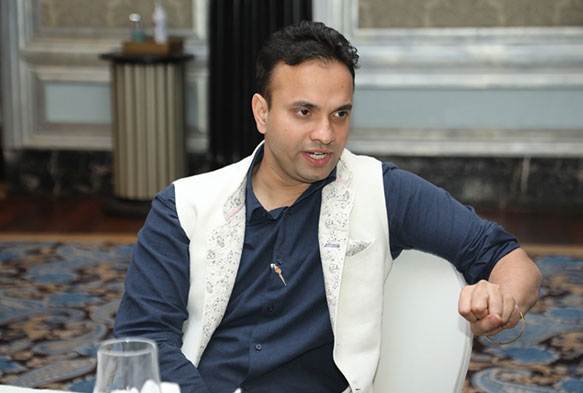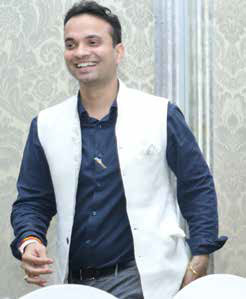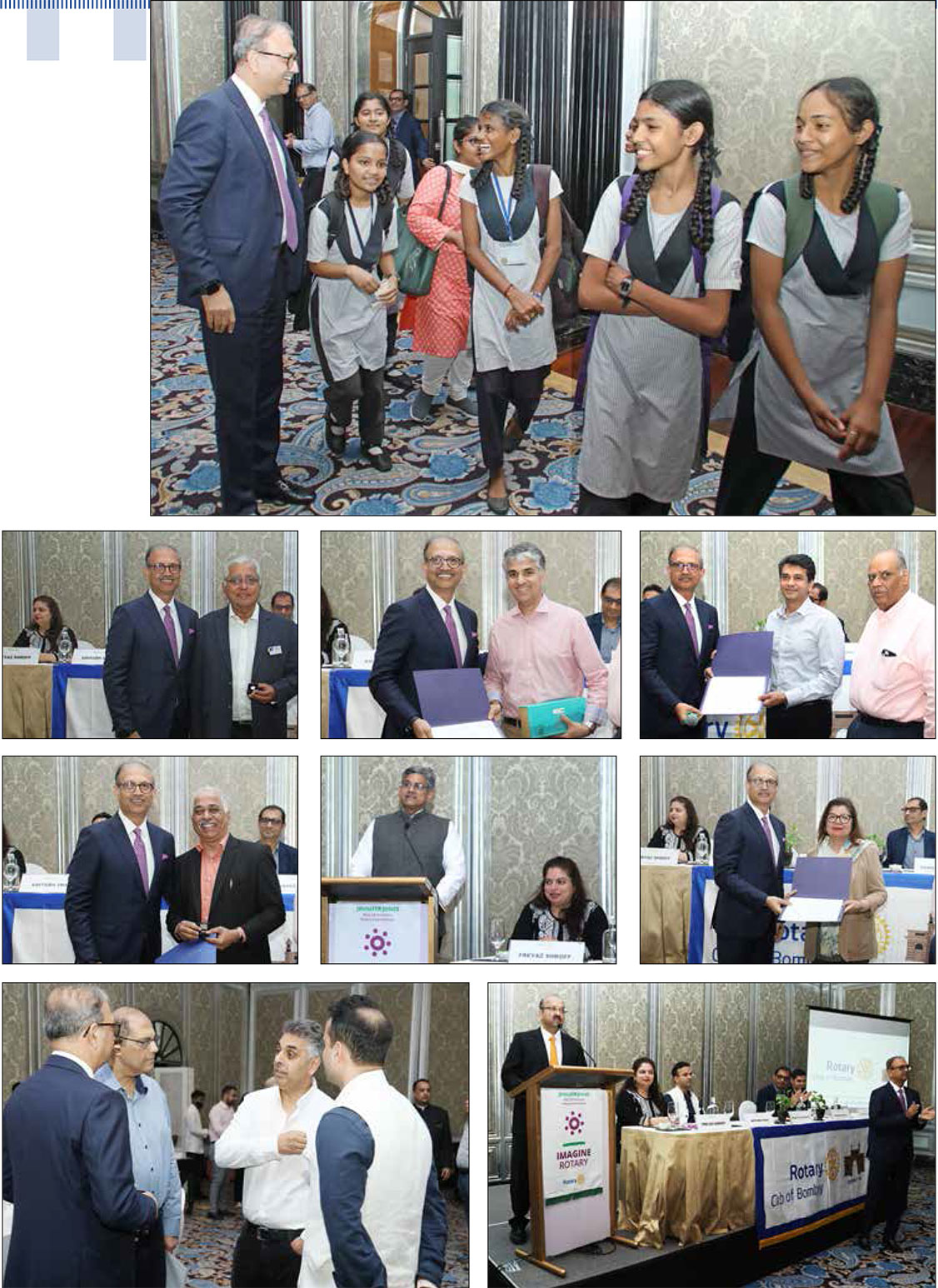
AMITABH SHAH, Founder, NGO Yuva Unstoppable, On Gratitude And Positive Thinking Learned From Their Beneficiaries
When I was in my 20s, I was working in Atlanta and had three best friends: vodka, tequila and margarita. About 50% of my money was spent on them. My typical Gujju father said: “This is not our culture.” So, I quit my job to come to Ahmedabad. On my flight, they were showing Swades and it reminded me that I too had a nanny who loved me and I decided to find her.

I found Kamla Baa in a village called Gontagaav. Baa was sitting below a tree, and she said, “Now that you have come to see me, I can die peacefully.” I found out that her son was feeding her just one meal a day. At night, she was given tobacco to fool her into thinking that she was eating. Sometimes, the son would come home drunk and beat her.
I could not leave her there, so I got her home with me; she put on some weight, too. But then, I had to leave for my scholarship programme in Texas. So, I took her to Suvarna Mandir Vrudhashram in Ahmedabad. I met the person who would be Baa’s roommate there and asked her why she was in the ashram. She said that her son had told her that he was going on a vacation for two days and it had been two years since then. She asked, “Has he sent you to get me, son?” I reassured her that I would be with her for some time.
I came home and asked my mom, “What is going on in this society? I can’t leave for the US; I am starting an NGO.” So, it started off as a voluntary organisation. I told my mom not to tell my dad that I was going to drop the scholarship and not go back. But a mere few seconds later, my father called me and gave me a good scolding about the scholarship. He said, “Who will marry you? How will you provide for the family and everything?” But I was firm on my decision, so he said, “I’ll just feed you; the rest you have to do on your own.”
So, we started a volunteer movement at this home, and it grew to 20,000 people; big companies started sending their employees to volunteer with us. Big names began to support the movement. Two years later, I went to Yale for an MBA, and declined an offer to work at JP Morgan. I had already told my dad that I was going only to come back and work on the real streets.
Modi was the chief minister of Gujarat then, and he told me that the real street work was the work in his office. He asked me to see the farm bills, the policies for widows, the subsidies… So, I shadowed him for three years and my journey continued.
Today, we are helping 6 million children all over. Kamla Baa was my first guru; never underestimate who you can learn from.
Since upgrading our facilities and nutritional work, we have been one of the major grant recipients of the Bill Gates Foundation. He hosted us a few days back in New York. I learnt a lot because there were a lot of change makers with me. We are going to work on malnutrition in the Soham Bhadra district in Uttar Pradesh.
I have shared the story of Vaishnavi Panchal from Baroda before. Her father polished diamonds for a living. Vaishnavi’s right arm stopped working just as she began her 12th standard during to malnutrition. She had two options: one, quit studies and work somewhere; or, practice writing A, B, C D with her left hand. She chose the latter, practicing 10 hours a day, and became a topper in Gujarat. She has ranked second in CA, now.
So, as long as I am alive, I am going to keep doing this. When I was at Gates Foundation, I met Shereen Bhan (journalist, CNBC-TV18). I had just started the Young India Philanthropy Pledge. Gates had helped us with the Charter; more than US$ 2 billion had been pledged. Young India is about giving at a young age. Shereen Bhan asked me for an interview, which I did.
I shared a story that gives me goosebumps. Samiksha Dubey from Bihar lost her father eight years ago. Her mother is a house help. She has an older sister and has kidney problems, so she needs dialysis. Her younger brother wants to become a veterinarian doctor, and is studying for NEET. Samiksha is working with us, under a scholarship. She is always smiling and always positive. She teaches maths and science to her neighbourhood kids two hours a day. That makes her feel positive. So, there are ways to give beyond money. This is what we have to learn. The next time you see the maid or driver, please say thank you and be extra kind to them, take care of them. Learn from the beneficiaries, so we become beneficiaries, too.
ROTARIANS ASK
What was your inner calling?
We have a tagline: Doing good is fun. When you offer help, your oxytocin, serotonin, dopamine levels go high, cortisol is low. Being around kids all the time, below the age of 16. Children smile 400 times a day, after 18 it’s 100 and after 21 they smile only 12 times. So, you can imagine being around children is so much fun. Being with children, doing good, is the best way to live life – it comes from a space of fun.
You have economic talents; how do you leverage that to create more money for your organisation?
India needs resources. 90% of the education budget goes into salaries and admin work. And only 7-10% to infrastructure. There is a huge need. I don’t have a bank account, so we made a deal with the family. They said if this is what you are going to do then we will feed you. Meri zarooratein kamm hai isiliye wajood mein dam hai. I told my wife as well, that this is what I would be doing for the rest of my life. She asked me, ‘Will I get two meals, and if yes, then I am in. If need be, I’ll work part time.’
So, we have a structured organisation. Everyone gets paid properly, I do the fundraising in the organisation, everyone else does the execution. I go to the existing donors and ask for more. The Gates Foundation introduces me to other foundations that help.
What was your ground step when you started?
I have been to Rotary meetings all over and that was my inspiration. I thought we would call a rock band, and I realised that good food would give good attendance. We gave pizza. We held concerts and people came; we gave badges for: cool, too cool, super cool for attendance. We structured it. People would go to old age homes near them and that’s how it started.


